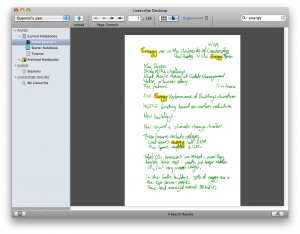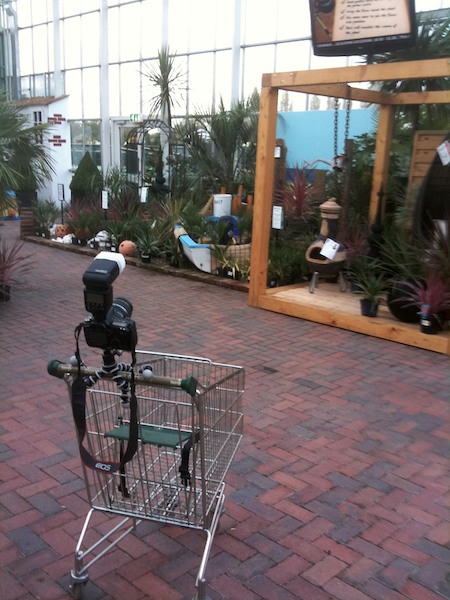Things are going well at Camvine.
Of course, we’ve had the usual trials and tribulations that any startup company goes through, exacerbated by the worst economy for decades in which to try and launch a new company with a new product! But we now have an excellent system in our CODA platform, and customers are starting to buy it and deploy it: you might well find yourself in a school corridor, garden centre, industrial factory, hospital waiting room, conference centre, or university faculty, and find yourself looking at information displayed on our internet-connected CODA screens.
So I’m now starting the fun process of raising further investment to take the company to the next stage. In preparation for this, I’ve been picking the brains of VCs, angel investors, executives and other knowledgeable people about the current state of the investment market, and thought I’d note down a few miscellaneous things I’ve heard.
This is a million miles from being a statistically-valid survey. It’s based on a small number of discussions so far. But I offer them in case they’re useful to others in a similar situation, and would welcome comments and further thoughts from others:
The timing is crucial with VC funds
Any VC fund that’s been around for a while is likely to have companies already in its portfolio that have been financially challenged over the last couple of years. They may have to support those with extra funding at the moment, rather than taking on new investments. The best opportunities are therefore coming from funds that raised their capital just before the downturn, and haven’t yet spent it all. Even some of those are being cannibalised to support earlier investments. Different funds have different degrees of freedom to do this, but in general it seems to be a common issue.
Many VCs are moving later-stage
For those of you who don’t speak VC – I myself am far from fluent – let me attempt to translate. One VC told me that the average time between putting money into a company and some sort of ‘exit’ (when they get their money back) has lengthened – it’s now about eight years. Since many funds operate with a ten-year lifespan, that doesn’t give them much room to manoeuvre. They need to have invested pretty quickly after the start of the fund to be able to tidy things up before the end, and remember that the eight year figure is an average. Some exits will take much longer.
As a result, many are investing in companies that are a bit more mature, even though the potential gains are smaller for the VC, simply to reduce this timespan. This isn’t such good news for startups.
The deals are still happening
 Or rather, they’re coming back. Mark Littlewood gathered some statistics together in a very interesting post recently.
Or rather, they’re coming back. Mark Littlewood gathered some statistics together in a very interesting post recently.
The numbers suggest that venture investments in the US, in particular, tumbled dramatically from a peak in mid-2007 to a nadir at the end of 2008, but are rebounding with equal gusto now. Even back in January an executive bubbled enthusiastically to me on the phone. “Here in California it feels as if the recession finished six months ago!” She may be right, but others have told me there’s precious little appetite at present for investing in European companies, so those of us on this side of the pond need to look for funds closer to home.
Mark’s statistics also suggest that European deals have fluctuated much less during this period than might have been expected, and certainly less than the US, though the UK perhaps more than anywhere else has followed the American rollercoaster ride. That’s the special relationship for you.
You may not need a VC
Doing a deal with a VC has always been a somewhat Faustian affair, and even if you avoid actually selling your soul to them, you may need to sell your shirt to pay your lawyers. One long-established Cambridge VC firm who shall remain nameless became something of a local laughing stock recently when they presented a modest-sized company with a term sheet that ran to 290 pages! But the VC route can be hard to avoid if you’re needing to grow fast.
I’ve generally worked on a rough rule of thumb that you can raise about £600K, maybe a bit more, from angel investors or groups of angels, and that VCs start to be interested once you get over about £1.5M. A million pounds is therefore the hardest amount to raise, and you either need to do it in smaller chunks or present a bigger, more dramatic vision, get more funding, and suffer more dilution than you might want at this stage. That, at least, has been my thinking.
But I was very encouraged when speaking to two separate CEO friends recently, each of them running a company which must have taken a few million in funding, to discover that they had both done it entirely on angel funding, sometimes with the help of government grants. Camvine has been blessed thus far with excellent angel investors who have been supportive at the right times and also asked the difficult questions when they needed to be asked. Angels can also generally move much faster than VCs when timing is tight. The idea that such a model might be something that could be extended much further than I had previously imagined was most encouraging.
So, for now, we’re expecting to raise this next round from individuals rather than institutions. I’m hoping that people will have realised their savings aren’t earning any interest in the bank, and that now is a great time to be investing in companies who have a product to sell as the economy starts to turn upwards again. (Though I’d also be keen to talk to any VCs who want to prove me wrong on any of the above assertions!)
Hope this is useful to somebody out there!




 Tonight, in the UK at least, we perform that ridiculous ritual of ‘putting the clocks back’. How much longer must we put up with this, for heaven’s sake? For once, though, I’m grateful, since Rose is catching a distressingly early flight in the morning, and the hour of our rising will at least feel less abominable than it would otherwise.
Tonight, in the UK at least, we perform that ridiculous ritual of ‘putting the clocks back’. How much longer must we put up with this, for heaven’s sake? For once, though, I’m grateful, since Rose is catching a distressingly early flight in the morning, and the hour of our rising will at least feel less abominable than it would otherwise.
Recent Comments